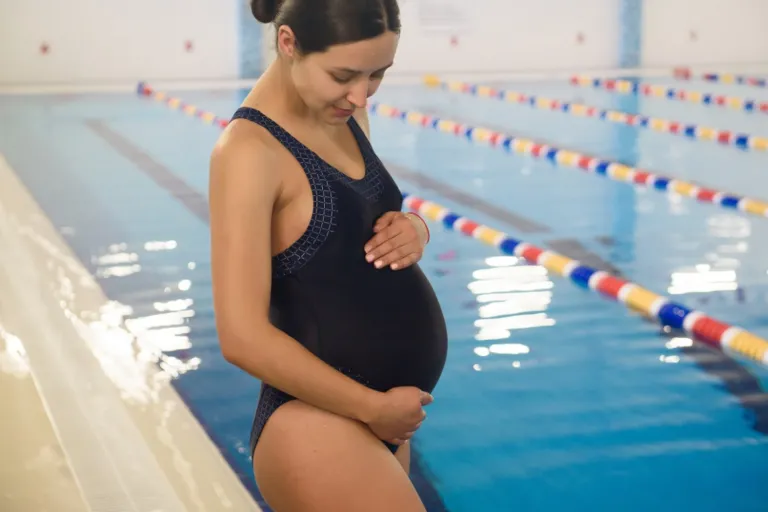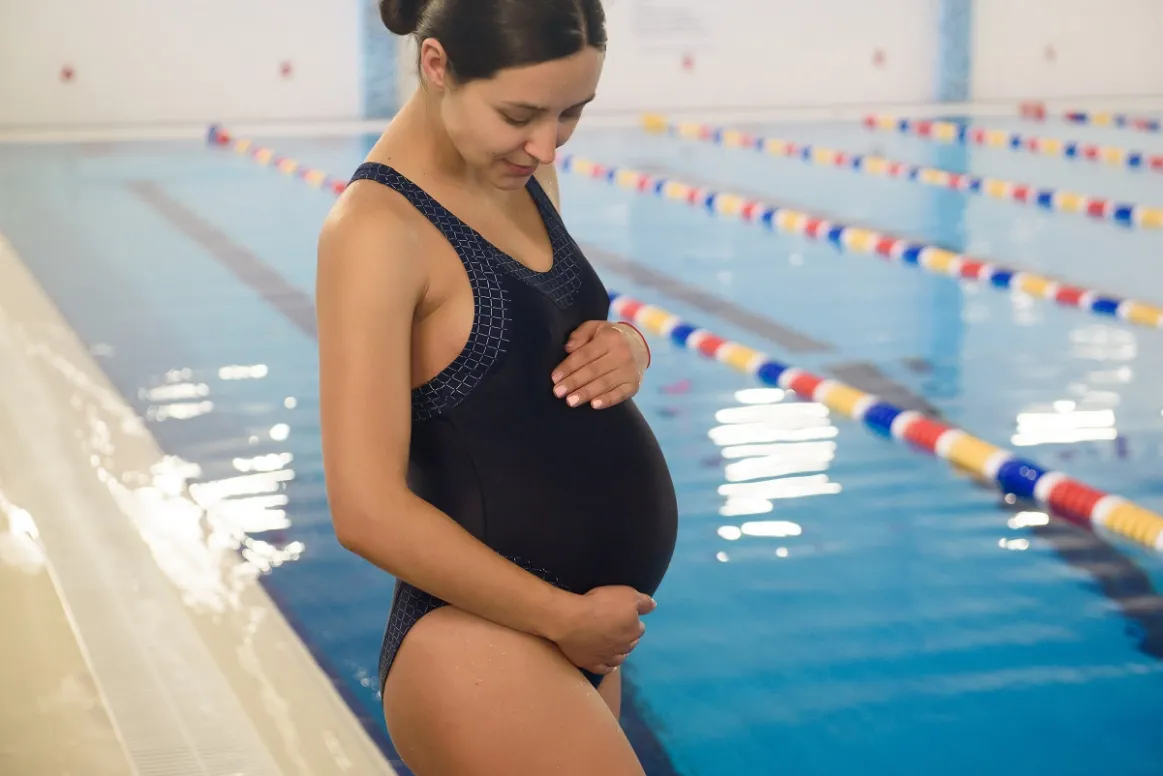Many expectant mothers want to be physically active during pregnancy. One of the most commonly chosen sports during this time is swimming. Is swimming safe for all women during pregnancy? When is it better to give it up?
Swimming during pregnancy – is it safe?
Swimming is one of the most recommended activities during pregnancy. Nevertheless, many expectant mothers have doubts about whether it is really a safe sport for them. Swimming pool visits are safe for most pregnant women, but much depends on the course of pregnancy and its possible complications. In a healthy pregnancy, the attending physician should not advise against visiting the swimming pool. However, the possible risk of frequent urinary tract and reproductive infections during pregnancy should be considered, as publicly accessible bathing facilities and swimming pools may promote such infections. In this situation, probiotics, for example, are recommended. In addition, pregnancy is a unique situation in which it is always necessary to treat all urinary tract infections. Taking antibiotics can weaken the woman’s organism, so it is better to refrain from swimming pool visits during treatment. If you visit the swimming pool, you should also remember the rules of hygiene, such as wearing bathing slippers and using your own towel.
Advantages of the pool during pregnancy
Swimming is the physical activity recommended by experts during pregnancy because it uses the most muscles in our body. There is also less risk of possible overload. The different weight of the body in the water also reduces the risk of joint injuries. Swimming has also been found to reduce swelling as well as back and sacral pain that occurs during pregnancy. In addition, it also likely influences the proper positioning of the baby in the mother’s abdomen. Most swimming pools offer activities for expectant mothers, such as water aerobics during pregnancy or AQUA GYM exercises.
When is swimming not allowed during pregnancy?
There are situations in which swimming pool visits during pregnancy are not recommended. The most common include: active reproductive tract infections, bleeding, and risk of miscarriage or premature birth. Swimming is also not allowed if amniotic fluid is leaking. It is advisable to ask the attending physician if there are any contraindications to going to the pool.
Pregnancy and hot tubs
Hot baths are not recommended during pregnancy. Expectant mothers should therefore avoid thermal baths and hot tubs for 9 months. This can have a negative effect on the blood supply to the placenta. Water massage itself has many benefits, such as relaxation and de-stressing, as well as reducing swelling. However, it is important that the water does not exceed a temperature of 37 degrees, as this can cause bleeding from the birth canal, among other things.











